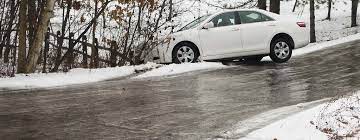19 September 2024
The latest warning issued by the South African Weather Service indicates that Level 6 disruptive snow can be expected in parts of the Uthukela, Harry Gwala and uMgungundlovu Districts. These weather conditions pose a danger to life and could lead to temporary road closures due to ice accumulation, causing traffic disruptions on major routes.
Residents in these areas are urged to take necessary precautions, including delaying unnecessary trips, as the risk of entrapment due to icy roads is very high.
A Level 2 disruptive snow warning has also been issued for parts of the Ugu, uThukela, uMgungundlovu, Harry Gwala and Amajuba Districts. The remaining parts of the province have a Level 2 warning for disruptive rain.
The MEC for COGTA assures residents that disaster management teams, coordinated by the Provincial Disaster Management Centre, are on the ground and will closely monitor developments. These teams are equipped to respond to emergencies and provide assistance where needed.
Plans are also in place to clear roads in collaboration with local municipalities and the Department of Transport. This coordinated effort aims to ensure that major routes are accessible and that any disruptions are promptly addressed.
Residents are encouraged to stay updated through official platforms and trustworthy news sources to receive the latest information and safety advice.
How To Stay Safe
1. Stay Informed:
- Monitor local weather updates and alerts through reliable sources.
- Follow instructions from local authorities and emergency services.
2. Prepare Your Home:
- Ensure you have enough food, water, and essential supplies to last at least 72 hours.
- Keep flashlights, batteries, and a battery-powered radio handy.
- Check that your heating systems are working properly and have a backup heating source if possible.
3. Travel Safety:
- Avoid unnecessary travel. If you must travel, inform someone of your route and expected arrival time.
- Keep an emergency kit in your car, including blankets, food, water, and a first-aid kit.
- Drive slowly and carefully, and keep a safe distance from other vehicles.
4. Personal Safety:
- Dress in layers to stay warm and avoid hypothermia.
- Stay indoors as much as possible. If you need to go outside, limit your exposure to the cold.
- Check on elderly neighbors and those who may need assistance.
Additionally, the severe weather poses a significant danger to livestock. Farmers and livestock owners are advised to take the following precautions to protect their animals:
- Shelter: Move livestock to sheltered areas to protect them from the cold and snow.
- Feed and Water: Ensure that animals have access to sufficient feed and unfrozen water. Stock up on feed supplies in advance.
- Health Checks: Regularly check on the health and well-being of livestock, looking out for signs of hypothermia or frostbite.
- Emergency Plans: Have an emergency plan in place for relocating livestock if conditions worsen.
By taking these precautions, farmers can help ensure the safety and well-being of their livestock during the severe weather conditions.
Issued by the Cooperative Governance and Traditional Affairs Department.

